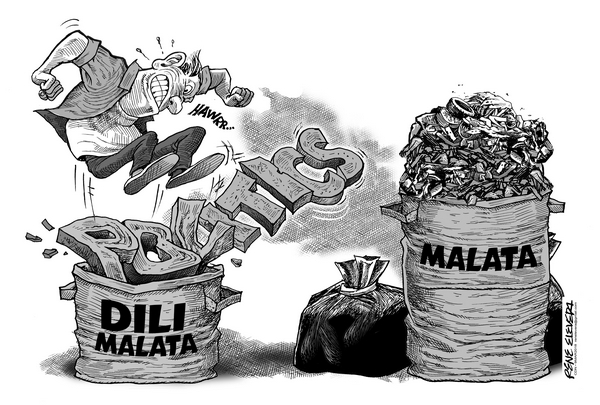
As expected, politics was again a factor in the (re)birth pains of the waste segregation policy resumed by the Cebu City government starting last Thursday, March 1.
Councilor Philip Zafra, president of the Association of Barangay Councils, spoke for a lot of barangay officials particularly those allied with the Barug Team Rama camp, when he said there was no coordination between barangay environment officers and the barangays.
He specifically mentioned that the barangay environment officers are reporting to the Barangay Mayor’s Office and not to the barangay officials themselves.
For her part, City Environment and Natural Resources Office (Cenro) chief Nida Cabrera said some barangays refused to cooperate with their barangay environment officers in enforcing the waste segregation policy.
Regardless of who’s telling the truth, the best evidence lies in the streets and so far the mounds of garbage still remain uncollected for days and even months.
But yesterday officially marks the first week since the waste segregation policy went into effect in Cebu City, so hiccups are expected.
Last week, about 50 households were fined for failing to segregate their garbage.
It is presumed that they were unaware of the program or are unaware of the date when it will be resumed, and they were given a day to prepare their receptacles to segregate their garbage.
Aside from that contentious Barangay Mayor’s Office row, the waste segregation program has another problem, which is the heavy traffic congestion caused by the ongoing underpass project at Natalio Bacalso Avenue.
This is where coordination and a workable collection schedule is critical especially for those barangays affected by the traffic congestion.
It is hoped that Cabrera and her people had the foresight and willingness to work with the barangay officials concerned to work out a collection schedule that their constituents can adjust to without sacrificing their compliance to the waste segregation policy.
To be sure, the success or failure of the waste segregation program will impact heavily on the re-election/election chances of incumbent barangay officials and those wishing to run in the May elections.
If that’s not enough incentive for them to encourage households to get on with the program, then they’re hopeless.
But the best incentive for following the waste segregation program is not the free sardines and canned food — though that can help a lot of people too poor to buy their own food — it is a cleaner community free of garbage, mosquitoes and bacteria-causing diseases.
It’s up to Cebu City officials to get past their political differences and work out a middle ground sans the Barangay Mayor’s Office through which they can enforce and sustain as well as institutionalize implementation of the waste segregation program.